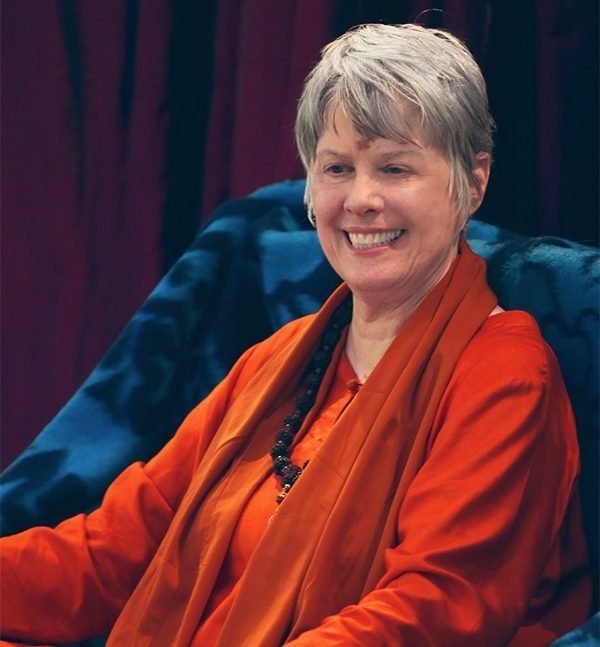 By Swami Nirmalananda Saraswati
By Swami Nirmalananda Saraswati
An ancient yogic teaching was rendered into a modern-day sutra (aphorism) by Mick Jagger and the Rolling Stones:
I can’t get no satisfaction…
I try, and I try, and I try, and I try…
Your heart and your whole being yearn for a satisfaction that the world cannot provide. Whether you’re striving for recognition on the job or in your relationships, a new home or a new car, whiter teeth or a better nose, or anything else – you can get it, but you’re still not satisfied. That sense of full and complete satisfaction is rare, and it is essential. Without it, life becomes a treadmill with no end in sight.
You have had experiences of complete satisfaction, perhaps better described as supreme contentment. One tantric text describes how nature can provide such profound experiences, whether you are looking at a vast view, getting lost in the woods or watching the ocean. In that timeless moment, you feel complete. You feel whole. There is nothing you need or want; there is nothing you need to do. I have heard people say, “If I died right now, it would be OK.”
 The first time I experienced this completeness, and I knew I was having an experience while I was having it, was at the top of a mountain. Mt. Tamalpais is not your ordinary mountain. Overlooking the Golden Gate Bridge, San Francisco Bay and Pacific Ocean, it is easily accessible — you can drive to the parking lot at the summit. My cousin took me there one afternoon. We wandered along different paths across the grassy field adjacent to the parking lot, so I had no clue what lay in my immediate future. As I came up over a rise, the whole breathtaking scene of bridge, bay and ocean burst open in front of me. As I write this, the hairs on my arms are standing on end. The memory of the event places me there again!
The first time I experienced this completeness, and I knew I was having an experience while I was having it, was at the top of a mountain. Mt. Tamalpais is not your ordinary mountain. Overlooking the Golden Gate Bridge, San Francisco Bay and Pacific Ocean, it is easily accessible — you can drive to the parking lot at the summit. My cousin took me there one afternoon. We wandered along different paths across the grassy field adjacent to the parking lot, so I had no clue what lay in my immediate future. As I came up over a rise, the whole breathtaking scene of bridge, bay and ocean burst open in front of me. As I write this, the hairs on my arms are standing on end. The memory of the event places me there again!
Yet I knew that something else was happening. Something I didn’t understand. I looked more closely at the bridge, thinking, “Is it you that is making me feel this way?” I looked at the sunset washing its colors over the fog bank, asking “Is it you?” I looked for the source of this ecstasy, but I could not find it in any of the things I saw, nor in the totality of the scene. I didn’t know that the source of what I had experienced, the sense of bursting open, was and is inside. A few months later, I found my way to my Guru, who gave me access to that inner source, which is my own Self. Your Self is in the same place, inside you.
Yoga calls this experience pratyabhij~na (prat-ya-bij-nya), which means recognition, referring to the recognition of your own inherent divinity. This is the only thing that truly satisfies you. This is why it is so hard to get satisfaction — you are looking in the wrong place. You are trying so hard, you try and you try and you try to get satisfaction from things that simply cannot provide it.
Why do you try so hard? One reason is that your hard works pays off, but only sometimes. Sometimes, like a runner after a long race, you get satisfaction. You might be exhausted, but somehow, through the exhaustion, that feeling of full and complete satisfaction bubbles up. Yoga’s ancient teachings explain how this works: when you gain something you strenuously wanted, your mind stops; every time your mind stops, the bliss of your own being arises within you.
 It’s like me standing there, overlooking the San Francisco Bay, realizing that the incredible feeling didn’t come from the view. It’s not like the view was emanating little bliss-bits that were soaking through my skin to make me happy from the outside-in. I knew that I didn’t understand the source of my feeling, but now I know why — I didn’t know where to look.
It’s like me standing there, overlooking the San Francisco Bay, realizing that the incredible feeling didn’t come from the view. It’s not like the view was emanating little bliss-bits that were soaking through my skin to make me happy from the outside-in. I knew that I didn’t understand the source of my feeling, but now I know why — I didn’t know where to look.
So when you work hard at something, or you desire it hard enough, and then you get it – you experience pratyabhij~na, what the Stones call “satisfaction.” This happens every time your mind stops, which is why so many of yoga’s practices are for the express purpose of quieting your mind. And when your mind settles into quietude, you experience the deeper dimension within, svaroopa — your own Self.